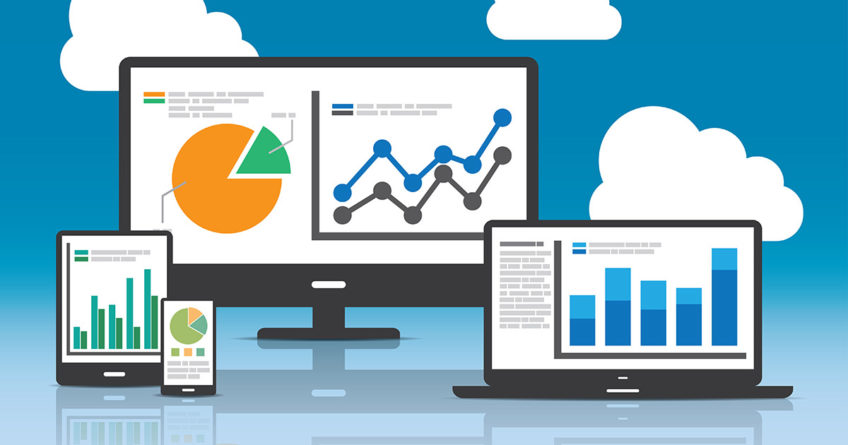Business intelligence (BI) software helps businesses process and analyze vast amounts of data, turning it into actionable insights. Below is a list of the top BI tools, each serving different needs based on company size, data volume, and specific use cases.
Best BI Software Tools
This list ranks the top BI software tools based on factors such as ease of use, data visualization capabilities, scalability, integration with other platforms, and real-time analytics.
These tools handle a range of business needs, from basic reporting for small businesses to large enterprises requiring customizable analytics solutions. Each tool has strengths and limitations, making them suited to different types of organizations and data analysis requirements.
1. Microsoft Excel
Microsoft Excel is still a key player for basic to intermediate data analysis. It’s useful for small datasets and quick calculations but lacks the advanced capabilities of more dedicated BI tools. It’s perfect for smaller businesses that don’t need heavy data integration but require flexibility.
Pros: Widely used, flexible, easy to learn.
Cons: Lacks advanced BI features, struggles with larger datasets.
2. Microsoft Power BI
Microsoft Power BI offers real-time data insights with a user-friendly interface. It’s ideal for companies already using Microsoft products, allowing seamless integration and data visualization. Power BI provides AI-driven analytics but can slow down with extensive datasets.
Pros: Great for visualizing data, integrates with Microsoft suite.
Cons: Can be slow with large datasets, customization options are limited.
3. Tableau
Tableau is a leader in data visualization, offering a drag-and-drop interface for easy dashboard creation. It’s particularly useful for companies that need to present complex data visually without needing technical expertise.
Pros: Excellent for visualizing complex data, intuitive interface.
Cons: Expensive, training required for advanced features.
4. SAP BusinessObjects
SAP BusinessObjects is built for enterprise-level reporting and ERP integration. It’s best for large companies needing detailed reports, role-based dashboards, and integration with other SAP systems.
Pros: Deep reporting capabilities, integrates well with ERP systems.
Cons: Expensive, complicated to set up.
5. IBM Cognos Analytics
IBM Cognos Analytics is known for its AI-driven insights and customizable reporting options. It’s a great choice for large enterprises needing strong data governance and predictive analytics, but its complexity can be a drawback for smaller businesses.
Pros: AI-driven insights, customizable reports.
Cons: Steep learning curve, high cost for smaller businesses.
6. Sisense
Sisense specializes in processing large datasets with its in-chip data processing feature. It’s scalable and user-friendly, making it ideal for businesses needing fast performance without advanced technical skills.
Pros: Fast data processing, scalable, user-friendly.
Cons: Limited mobile functionality, expensive for small businesses.
7. Zoho Analytics
Zoho Analytics is an affordable BI tool that integrates seamlessly with other Zoho products. It’s ideal for small to medium-sized businesses that need basic reporting and collaboration features, though it lacks more advanced capabilities.
Pros: Budget-friendly, integrates well with Zoho suite.
Cons: Lacks advanced analytics, struggles with large datasets.
8. Qlik Sense
Qlik Sense offers real-time data processing and a powerful associative data model for dynamic exploration. It’s perfect for businesses that need both desktop and mobile data access.
Pros: Excellent real-time processing, strong mobile support.
Cons: Complex setup, higher costs for advanced features.
9. TIBCO Spotfire
TIBCO Spotfire excels in real-time data visualization and predictive analytics. It’s ideal for businesses needing to analyze complex data from multiple sources, although the learning curve can be steep.
Pros: High-level visualization, strong predictive analytics.
Cons: High learning curve, expensive for small companies.
10. Google Data Studio
Google Data Studio is a free, web-based tool that integrates seamlessly with Google services like Analytics and Sheets. It’s perfect for small businesses needing basic data visualization but lacks advanced BI features.
Pros: Free, integrates well with Google services.
Cons: Lacks advanced BI capabilities.
What Business Intelligence Software Does

Business intelligence software helps businesses collect, analyze, and present data to inform decision-making. Whether through basic tools like Excel or advanced platforms like Tableau, companies can gain insights into their operations, markets, and customers.
Selecting the right BI tool depends on factors like the size of the business, the complexity of its data, and specific reporting or visualization needs.
Improve customer feedback
BI tools can track customer satisfaction through sales analysis, surveys, and after-sales services. These insights allow businesses to adapt their strategies, improving customer service and product offerings. Tools like Power BI and Zoho Analytics are great for companies focused on customer data.
Gain an edge on competitors
Competitor analysis is another key feature of BI software. With tools like SAP BusinessObjects and Qlik Sense, companies can analyze competitor strategies, market trends, and performance. This helps businesses adjust their approach and stay competitive.



